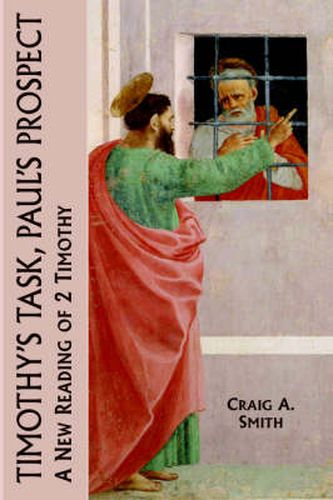Readings Newsletter
Become a Readings Member to make your shopping experience even easier.
Sign in or sign up for free!
You’re not far away from qualifying for FREE standard shipping within Australia
You’ve qualified for FREE standard shipping within Australia
The cart is loading…






In this challenging book, Craig Smith propounds the novel thesis that the famous lines in 2 Timothy 4 where ‘Paul’ announces that the time of his departure has come have been misunderstood. This is no farewell speech, Smith avers, and Paul is not intending to pass on the baton to his younger colleague, Timothy. Deploying epistolary analysis and rhetorical criticism, Smith shows that these verses (4.1-8) do not have the literary structure or the vocabulary of a testament or a farewell; rather, they are a ‘charge’, an authoritative command, comprised of five specific formal elements. This charge form is found also in the exorcism command and in some magical texts, Christian and non-Christian. From this perspective, Paul’s being poured out as a libation is his experience of preaching to the Gentiles at his first trial, his ‘departure’ is the imminent release from prison that he is expecting, the fight he has fought and the race he has finished are his trial that he has withstood. Far from appointing Timothy as his successor, he is contemplating a continued companionship and collegiality as they continue their ministry together.
$9.00 standard shipping within Australia
FREE standard shipping within Australia for orders over $100.00
Express & International shipping calculated at checkout
In this challenging book, Craig Smith propounds the novel thesis that the famous lines in 2 Timothy 4 where ‘Paul’ announces that the time of his departure has come have been misunderstood. This is no farewell speech, Smith avers, and Paul is not intending to pass on the baton to his younger colleague, Timothy. Deploying epistolary analysis and rhetorical criticism, Smith shows that these verses (4.1-8) do not have the literary structure or the vocabulary of a testament or a farewell; rather, they are a ‘charge’, an authoritative command, comprised of five specific formal elements. This charge form is found also in the exorcism command and in some magical texts, Christian and non-Christian. From this perspective, Paul’s being poured out as a libation is his experience of preaching to the Gentiles at his first trial, his ‘departure’ is the imminent release from prison that he is expecting, the fight he has fought and the race he has finished are his trial that he has withstood. Far from appointing Timothy as his successor, he is contemplating a continued companionship and collegiality as they continue their ministry together.